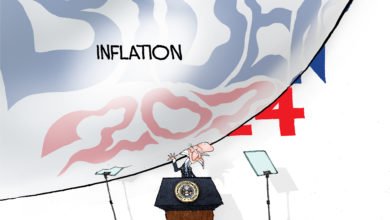H Res. 292 Speaker Boehners Libya Resolution
Passed House on June 3rd, 2011 Executive Summary [Full Text Here]
H. Res. 292 would make the following statements of policy:
- “The United States Armed Forces shall be used exclusively to defend and advance the national security interests of the United States;
- “The President has failed to provide Congress with a compelling rationale based upon United States national security interests for current United States military activities regarding Libya;
- “The President shall not deploy, establish, or maintain the presence of units and members of the United States Armed Forces on the ground in Libya unless the purpose of the presence is to rescue a member of the Armed Forces from imminent danger.”
The bill would direct the Secretary of State, the Secretary of Defense, and the Attorney General to transmit—within 14 days after adoption of the resolution—copies of any official document, record, memo, correspondence, or other communication in their possession that was created on or after February 15, 2011, that refers or relates to consultation or communication with Congress regarding the employment or deployment of the U.S. Armed Forces for Operation Odyssey Dawn or North Atlantic Treaty Organization (NATO) Operation Unified Protector; or the War Powers Resolution and Operation Odyssey Dawn or Operation Unified Protector.
H. Res. 292 would require the President to submit a report to Congress within 14 days of enactment describing U.S. security interests and objectives, and the activities of the U.S. Armed Forces in Libya since March 19, 2011, including a description of the following:
- “The President’s justification for not seeking authorization by Congress for the use of military force in Libya;
- “United States political and military objectives regarding Libya, including the relationship between the intended objectives and the operational means being employed to achieve them;
- “Changes in the United States political and military objectives following the assumption of command by the NATO;
- “Differences between United States political and military objectives regarding Libya and those of other NATO member states engaged in military activities;
- “The specific commitments by the United States to ongoing NATO activities regarding Libya;
- “The anticipated scope and duration of continued United States military involvement in support of NATO activities regarding Libya;
- “The costs of United States military, political, and humanitarian efforts concerning Libya as of June 3, 2011;
- “The total projected costs of United States military, political, and humanitarian efforts concerning Libya;
- “The impact on United States activities in Iraq and Afghanistan;
- “The role of the United States in the establishment of a political structure to succeed the current Libyan regime;
- “An assessment of the current military capacity of opposition forces in Libya;
- “An assessment of the ability of opposition forces in Libya to establish effective military and political control of Libya and
a practicable timetable for accomplishing these objectives; - “An assessment of the consequences of a cessation of United States military activities on the viability of continued NATO operations regarding Libya and on the continued viability of groups opposing the Libyan regime;
- “The composition and political agenda of the Interim Transitional National Council (ITNC) and its representation of the views of the Libyan people as a whole;
- “The criteria to be used to determine United States recognition of the ITNC as the representative of the Libyan people, including the role of current and former members of the existing regime;
- “Financial resources currently available to opposition groups and United States plans to facilitate their access to seized assets of the Libyan regime and proceeds from the sale of Libyan petroleum;
- “The relationship between the ITNC and the Muslim Brotherhood, the members of the Libyan Islamic Fighting Group, al-Qaeda, Hezbollah, and any other group that has promoted an agenda that would negatively impact United States interests;
- “Weapons acquired for use, and operations initiated, in Libya by the Muslim Brotherhood, the members of the Libyan Islamic Fighting Group, al-Qaeda, Hezbollah, and any other group that has promoted an agenda that would negatively impact United States interests;
- “The status of the 20,000 MANPADS cited by the Commander of the U.S. Africa Command, as well as Libya’s SCUD–Bs and chemical munitions, including mustard gas;
- “Material, communication, coordination, financing and other forms of support between and among al-Qaeda operatives, its affiliates, and supporters in Yemen, the Horn of Africa, and North Africa; and
- “Contributions by Jordan, the United Arab Emirates, Qatar, and other regional states in support of NATO activities in Libya.
The bill would declare that the President has not sought, and Congress has not provided, authorization for the introduction or continued involvement of the United States Armed Forces in Libya. H. Res. 292 would also declare that Congress has the constitutional prerogative to withhold funding for any unauthorized use of the United States Armed Forces, including for unauthorized activities regarding Libya.
Requirements of the President under the War Powers Resolution:
Section 4(a)(1) of the War Powers Resolution requires the President to report to Congress within 48 hours of commencing operations by U.S. forces when there has been no declaration of war. On March 21, 2011, 48-hours after U.S. Armed forces engaged in military operations, the President submitted a letter/report to Congress to justify the use of force in Libya.
Section 5(b) of the War Powers Resolution states that the President shall terminate operations within 60 days following the report to Congress, unless the use of force is authorized by Congress. On May 20th, concurrent with the 60-day limitation in the War Powers Resolution, the President submitted a letter to Congress providing an update on the status and nature of U.S. military involvement in Libya and urging adoption of a Senate resolution expressing support for military operations in Libya.
The President can extend the involvement by 30 days if he certifies to Congress that it is necessary to safely remove U.S. forces.
There is a range of differing legal opinion about whether the President needs Congressional authorization to continue U.S. military involvement beyond the 60-day deadline for termination under the War Powers Resolution, which occurred on May 20th. Congress has the authority to cut-off funding for any military action. The House approved an amendment offered by Rep. Conyers (D-MI) to the National Defense Authorization Act which prevented funds authorized in the Act from being used to fund ground troops in Libya by a vote of 416-5.




